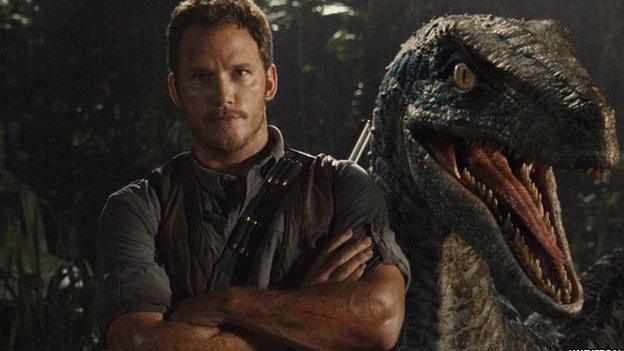Jurassic World: The secret to its success
- Published
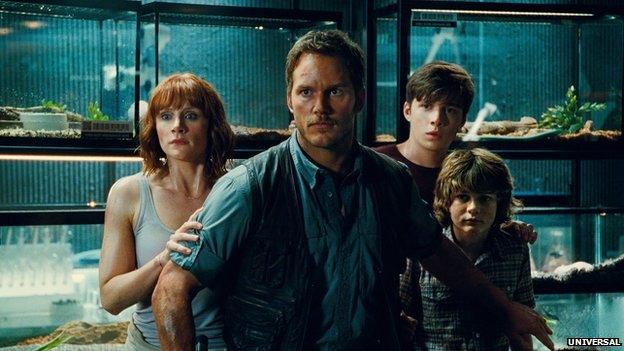
Jurassic World has become the first film to take more than $500m (£322m) at the global box office on its opening weekend.
In the US it took $204.6m (£132m) according to early estimates, making it the second biggest opening weekend ever just behind 2012's Marvel's The Avengers with $207.4m (£133.8m).
What is the secret to the film's success?
Chris Pratt
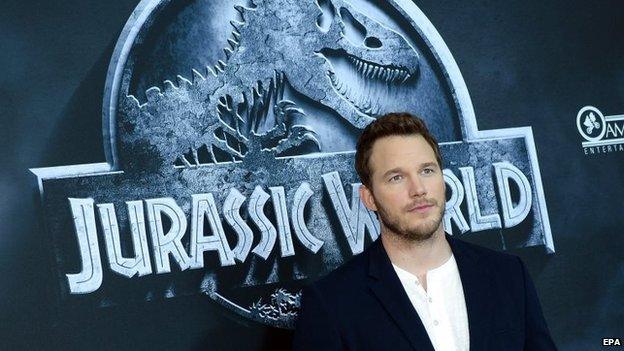
Although he spent many years in supporting roles and is best known for his comic role in cult US sitcom Parks and Recreation, Pratt has become one of Hollywood's most bankable stars in the past year.
He starred in two of 2014's top five grossing films at the US box office - The Lego Movie and Guardians of the Galaxy.
An endearing mixture of charm, vulnerability and humour means he can humanise even the most effects-laden summer blockbusters - something he proved in Marvel's Guardians, where his co-stars were a talking raccoon and a giant animated tree.
Against expectations, the film took $774m (£499m) at the global box office - making it the third highest-grossing film in 2014.
The actor didn't exactly get hit with the ugly stick, either.
The China effect
There is a strict quota on the number of foreign films which can be screened in China - currently set at 34 movies a year.
But the country's film market is the world's second largest after the US so getting your film on the list can boost box office takings considerably.
Most Hollywood blockbusters do not open in China the same time as the US but unusually, Jurassic World opened in both territories the same weekend.
The film opened in 66 foreign markets in total, earning $307.2m (£198m). China accounted for $100.8m (£65m) - almost 20% of its total haul.
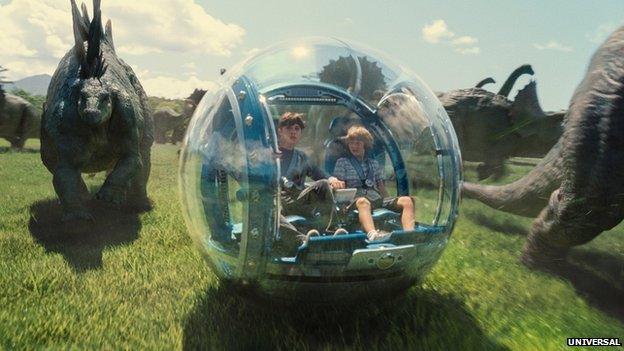
The dinosaurs are bigger - and in 3D
When Jurassic Park was released Imax screens were scarce, reserved usually for short films, documentaries and theme park novelties.
With some 800 Imax screens around the world now, the prospect of seeing dinosaurs even larger than life-size has proved to be a compelling draw.
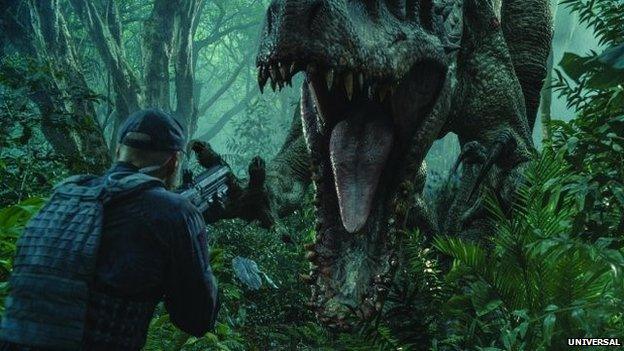
With the added ability to see a T-Rex in 3D, it seems audiences have been happy to pay premium prices for extra spectacle - bumping up box office returns in the process.
According to box office analysts Rentrak, nearly 50% of Jurassic World's US box office came from 3D screenings.
Nostalgia
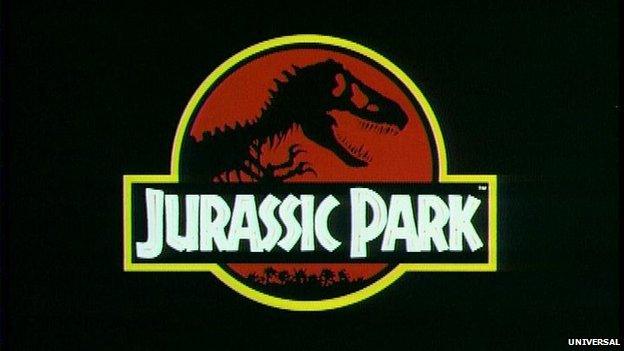
Steven Spielberg's 1993 blockbuster Jurassic Park holds a special place in the memories of many cinema fans.
It set a new standard for CGI, and became a touchstone of 1990s cinema, capturing a generation's imagination.
"I was 12 when Jurassic Park came out and it just blew me away," Jurassic World actress Dallas Bryce Howard told the BBC.
"I remember watching it and thinking, 'I'm seeing real dinosaurs right now'. It felt so real."
"I was 13 years old and I felt the same," her co-star Chris Pratt added. "I had complete Jurassic-mania and saw it twice in one weekend."
After two sequels which failed to match the success of the original at both the box office and with critcs, fans hoped the new film would bring back the magic, thrills and horror of Spielberg's classic - and many dragged their children with them.
- Published14 June 2015
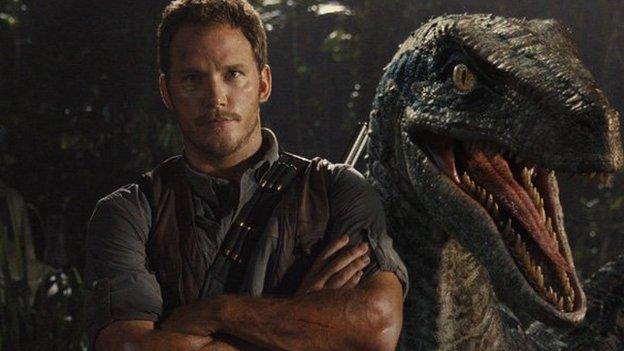
- Published12 June 2015
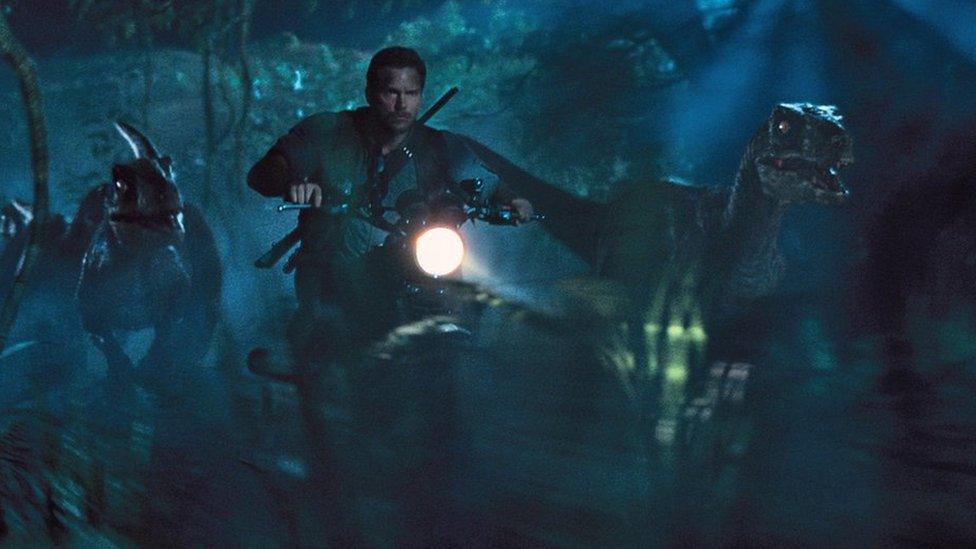
- Published11 June 2015
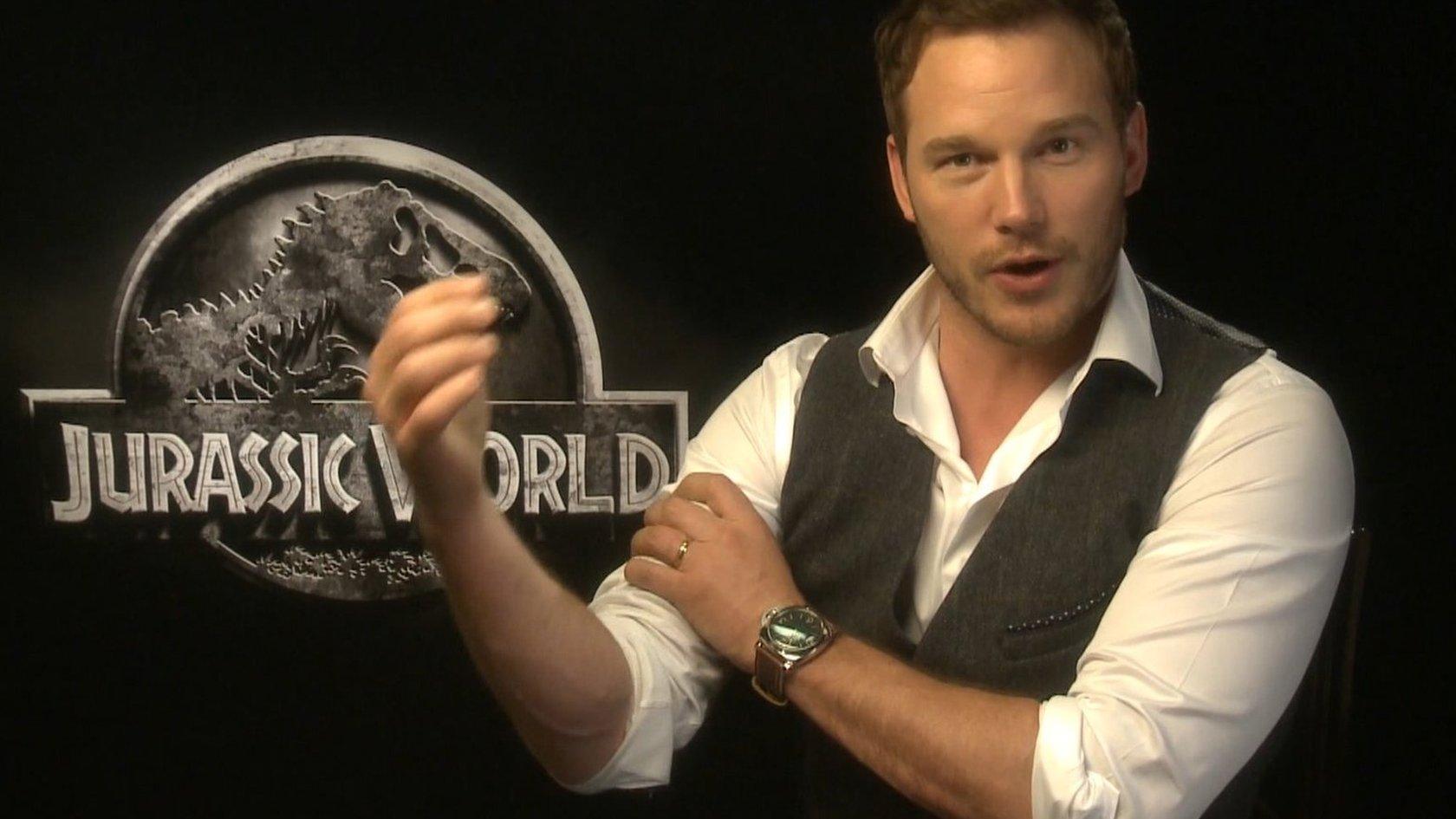
- Published11 June 2015
